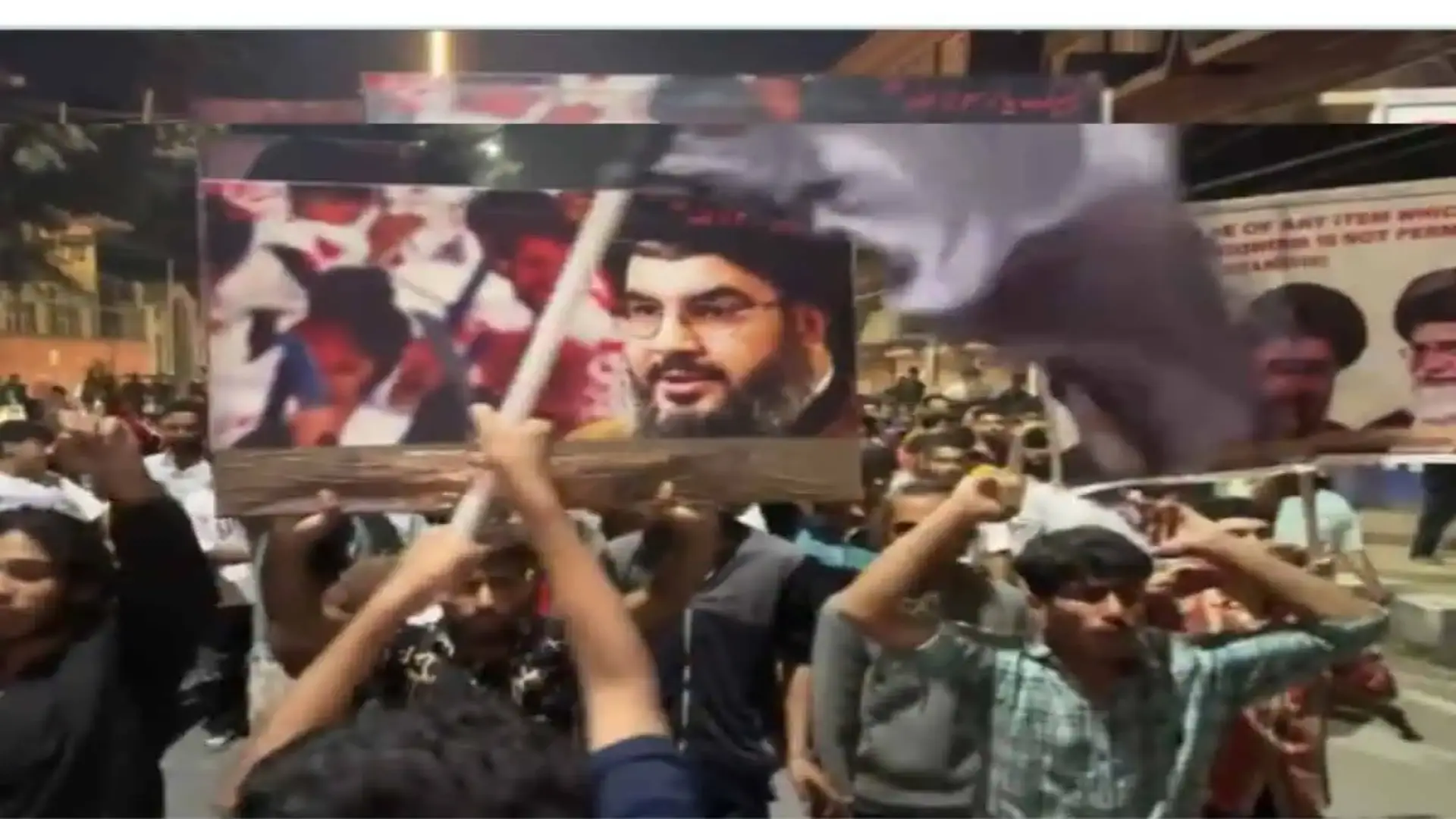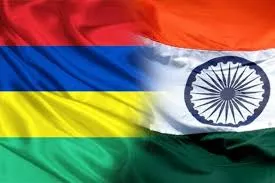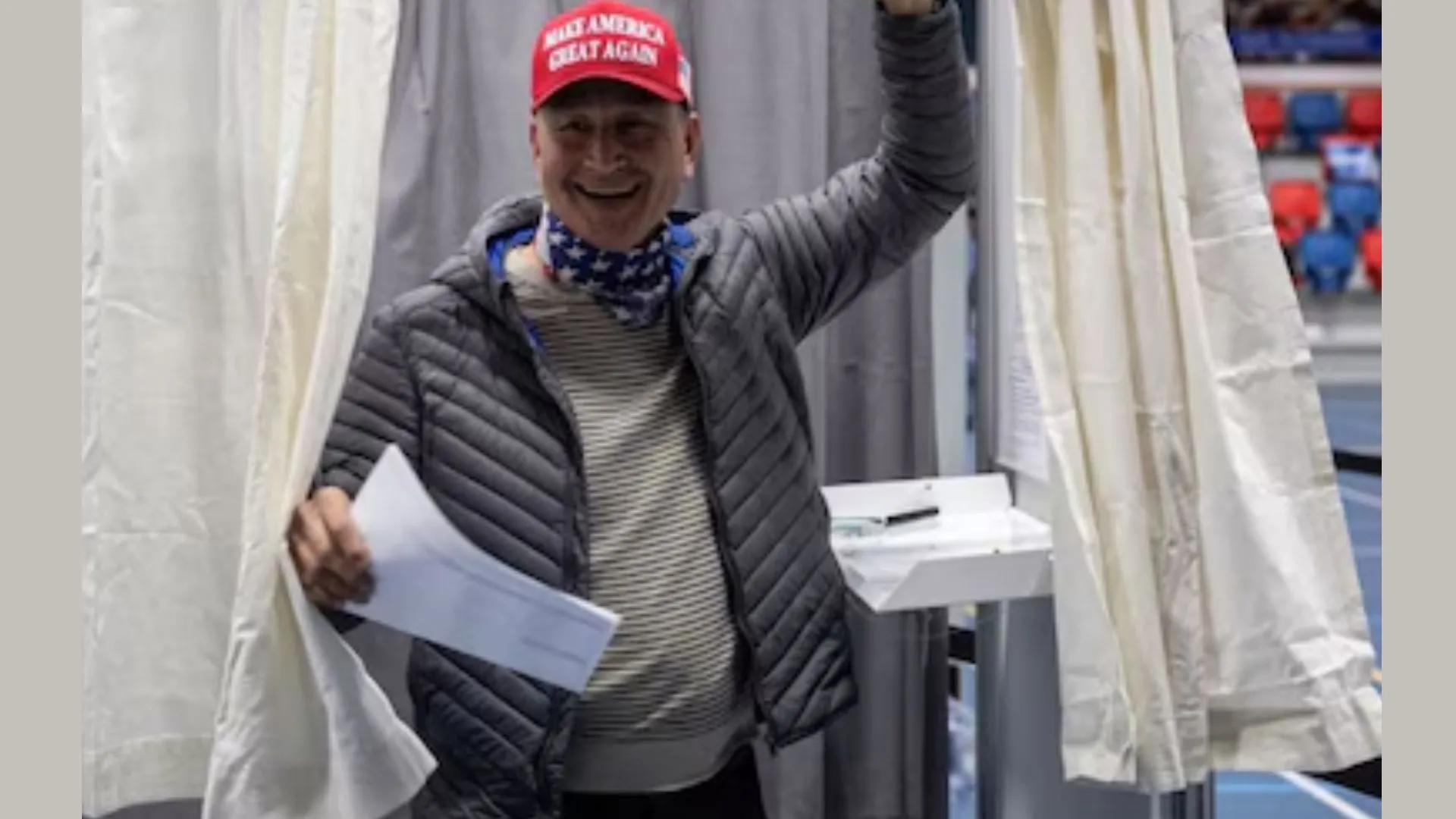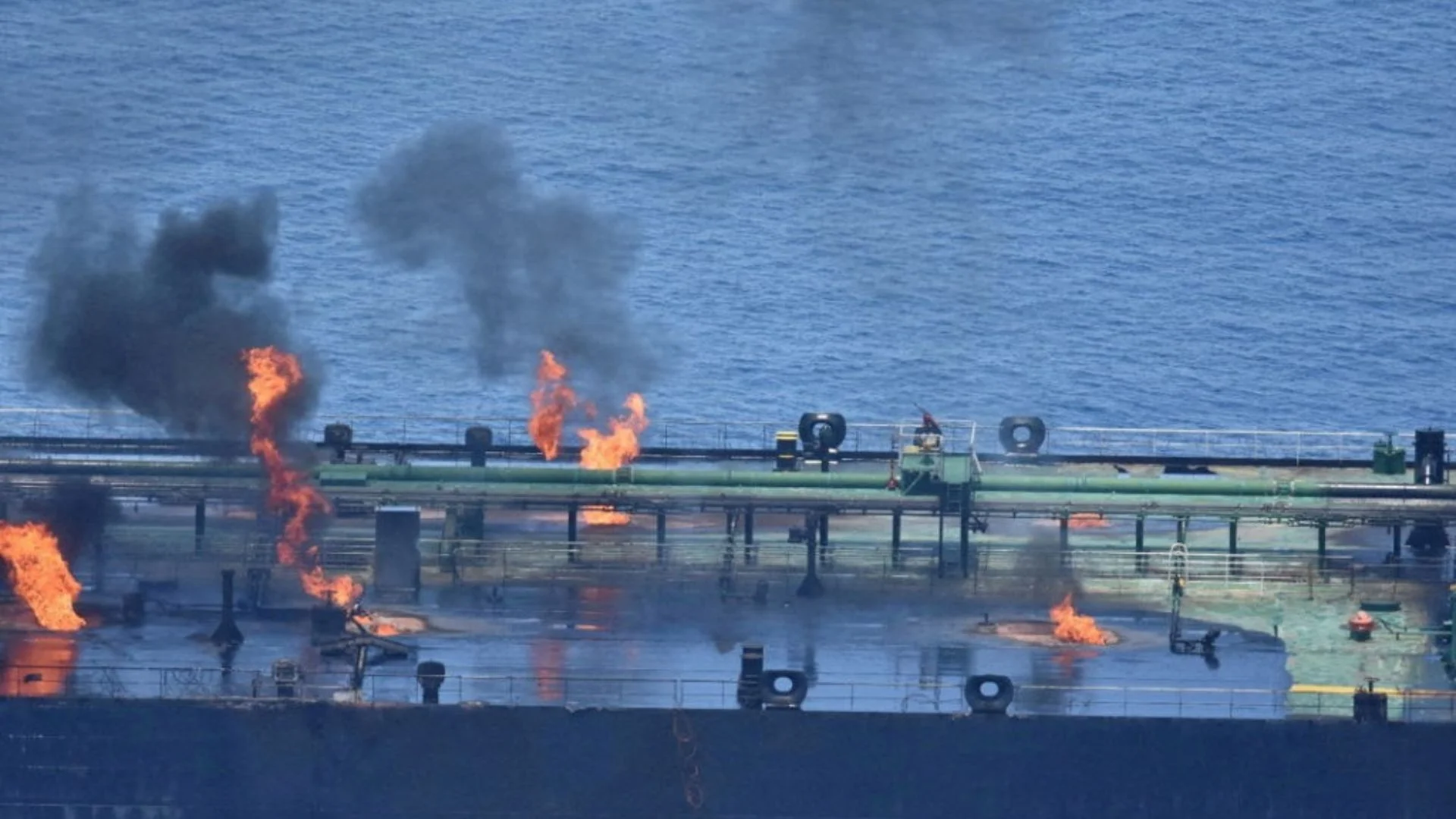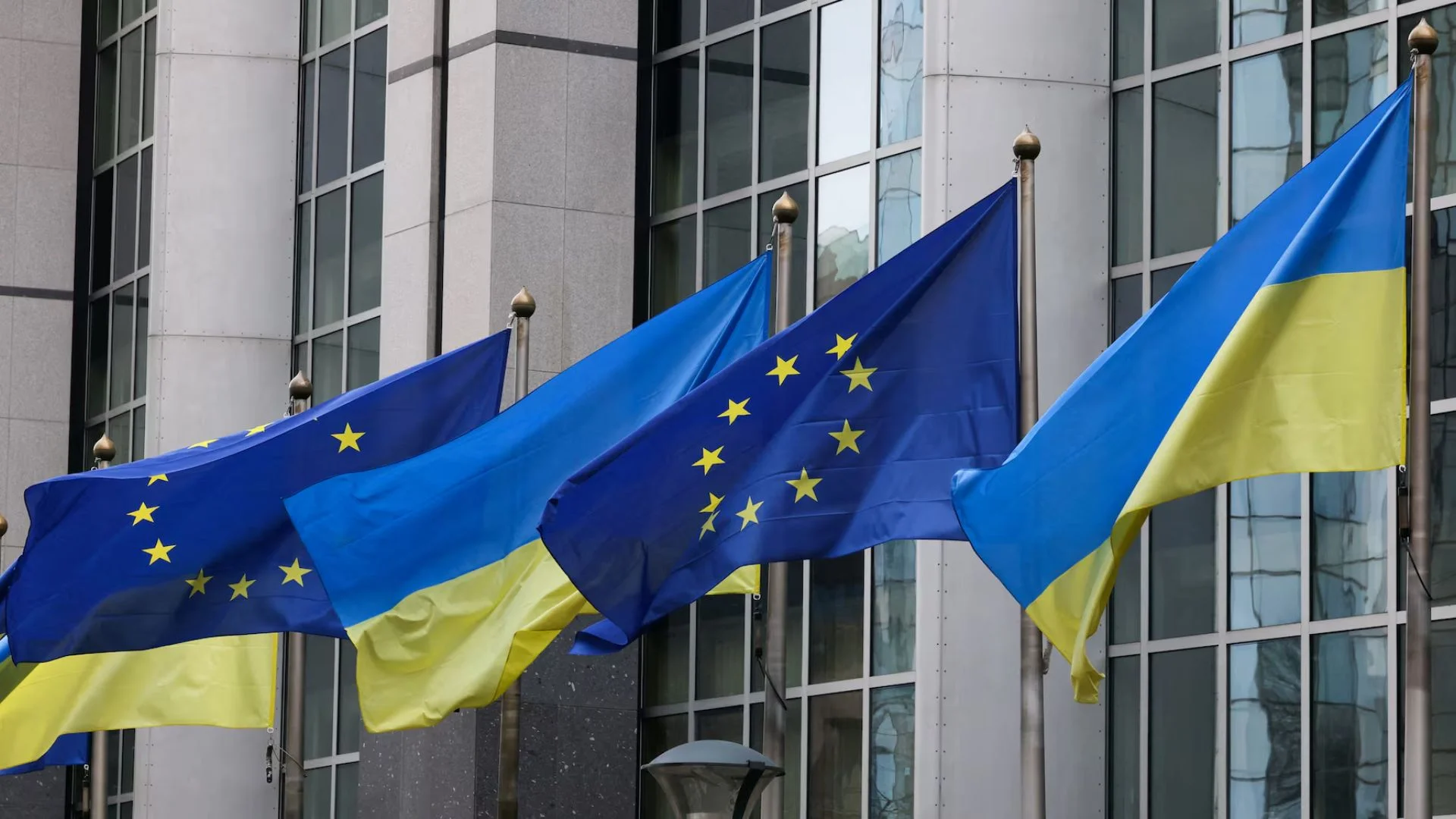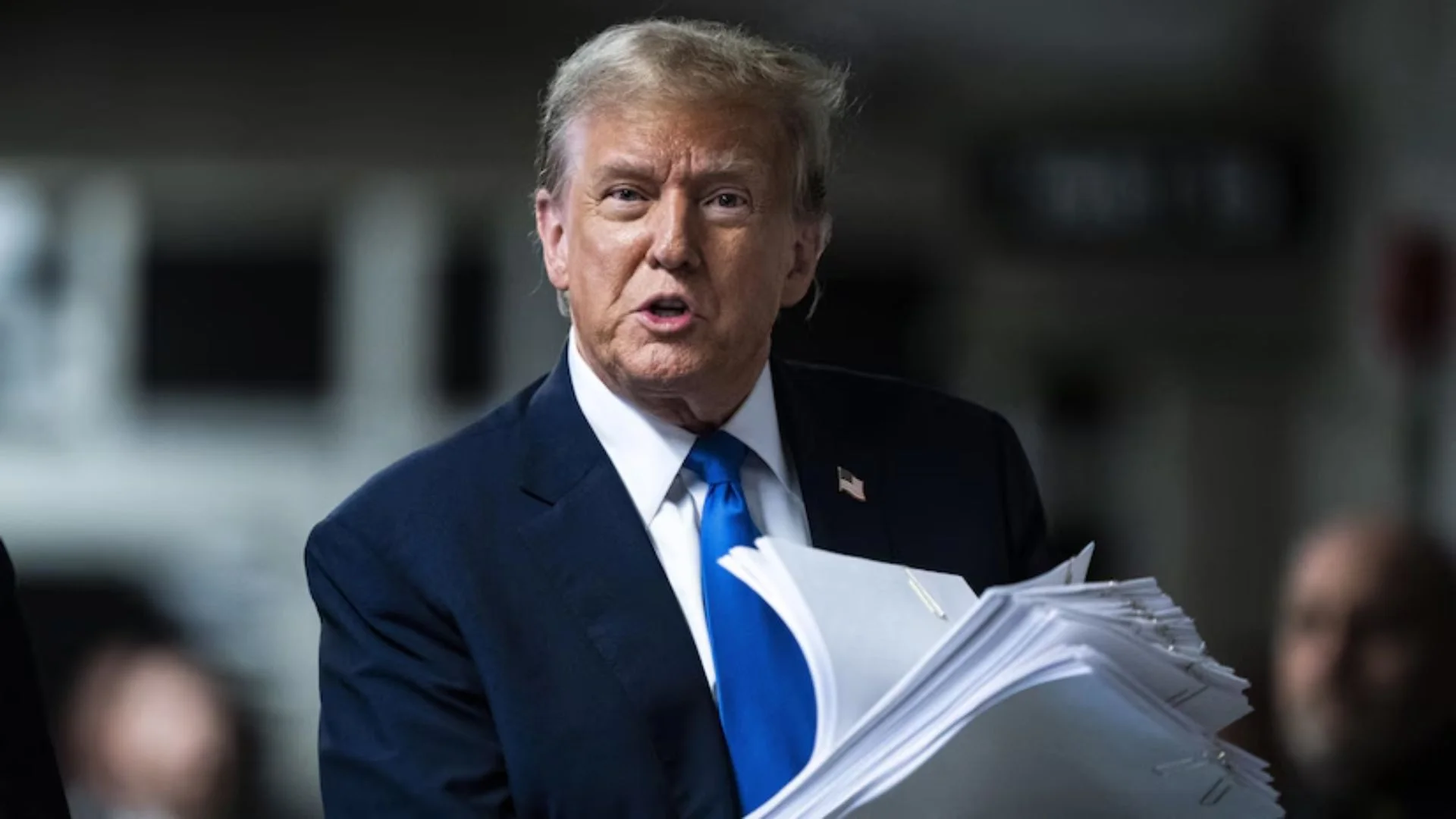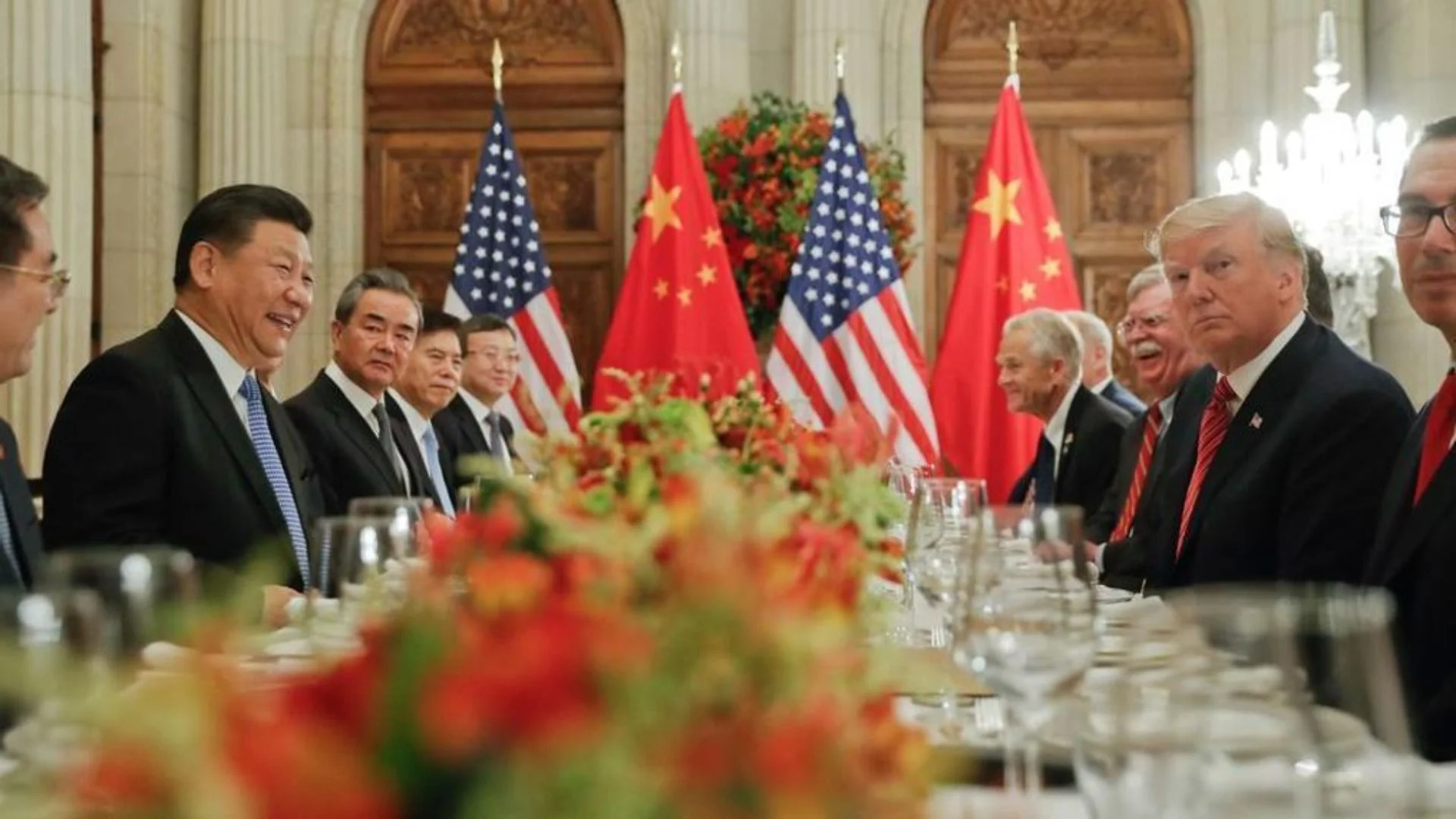The assassination of Hezbollah leader Hassan Nasrallah by Israeli airstrikes in Lebanon has triggered a wave of protests across Kashmir, particularly in its Shia-majority areas. Thousands of people took to the streets in districts like Budgam and Srinagar, holding placards and shouting slogans condemning both Israel and the United States. Demonstrators expressed their anger and solidarity with Lebanon, Palestine, and Hezbollah, seeing Nasrallah’s death as part of a broader pattern of aggression against Muslims worldwide.
The protests, though largely peaceful, were highly emotional, with participants recalling the pain and suffering caused by the ongoing conflicts in Gaza and Lebanon. Religious and political leaders in the region have also voiced their discontent. Prominent figures, such as Mehbooba Mufti of the Peoples Democratic Party (PDP) and Aga Syed Ruhullah Mehdi of the National Conference, canceled their election campaigns as a mark of solidarity with Nasrallah and the broader resistance movement. Mufti, in a post on X, declared her support for the martyrs of Lebanon and Palestine, stating that the region stands in solidarity with those oppressed by Israeli aggression.
This political gesture has drawn sharp criticism from India’s ruling Bharatiya Janata Party (BJP), which accused these leaders of sympathizing with terrorists. Union Minister Anurag Thakur accused the opposition parties of showing support for “terrorists and stone-pelters” whenever there is any international action against such groups. This rhetoric escalated further, with senior BJP leaders calling out Mufti for “crocodile tears” over the death of a terrorist, reflecting the deep ideological divide between Kashmir’s regional politics and the BJP’s national stance.
Despite the political tension, the protests have remained non-violent, with heavy police presence to maintain order. Cyber police in Kashmir have also issued warnings against inflammatory posts on social media, urging citizens to refrain from fanning sectarian tensions in light of the protests. The advisory emphasized that legal action would be taken against those spreading provocative content online.
Also read: Hezbollah To Appoint Nasrallah’s Successor Soon, Vows Continued Fight Against Israel
Kashmir’s solidarity with Hassan Nasrallah stems from a combination of religious, political, and historical factors. As a leader of Hezbollah, Nasrallah symbolized resistance against Israel and Western influence, which resonates deeply with the Shia community in Kashmir. Hezbollah’s stance against Israeli occupation and its support for Palestine align with long-standing sentiments in Kashmir, where many sympathize with the Palestinian cause due to their own experience with territorial conflict and occupation.
Religiously, Nasrallah is revered as a figure of Shia leadership, and his assassination is viewed as an attack on the larger Muslim resistance movement. In Kashmir, Shia clerics and political figures often mobilize people around issues affecting the global Muslim community, especially when it concerns resistance against perceived oppression. This shared sense of injustice, along with cultural and ideological ties to movements like Hezbollah, has brought Kashmiri communities together in protest and mourning following Nasrallah’s death.
The broader narrative of resistance, combined with a history of external domination in both Kashmir and Palestine, solidifies the connection between the two regions and their support for Nasrallah.

